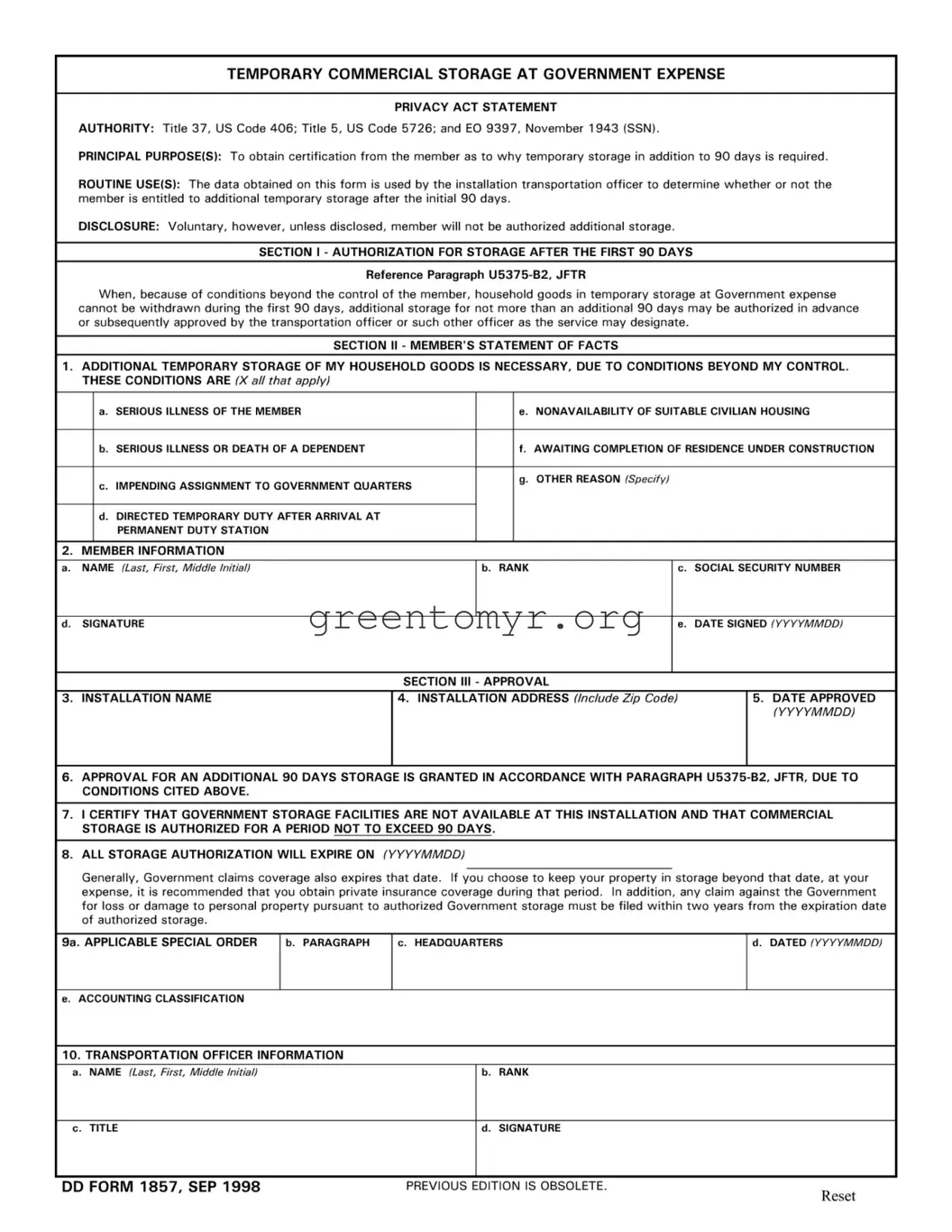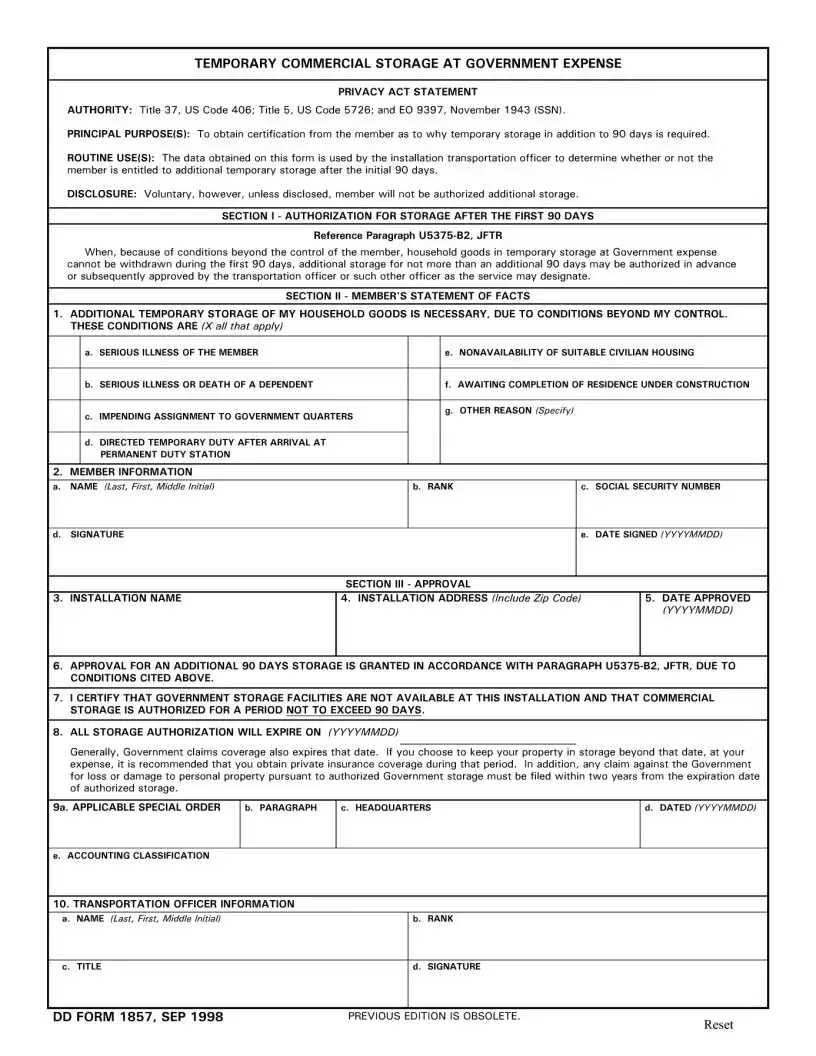The DD Form 1857 is an essential document used by military personnel seeking temporary commercial storage for their household goods at government expense. Its primary function is to certify the necessity for additional storage beyond the standard 90-day period. Various circumstances may prompt a member to request this extension, such as serious illness, death of a dependent, or housing issues. The form requires the member to furnish details about their situation, thereby assisting the transportation officer in evaluating eligibility for continued storage. It is important to note that while disclosing information is voluntary, failure to do so may result in denial of the storage request. The form also delineates authorization standards, stating that additional storage approval must align with established military regulations. After the approval process, the form incorporates specific data about the installation and the transportation officer, ensuring proper record-keeping and accountability. Members should be aware that additional storage granted under this form is limited to a maximum of 90 days, and it comes with important guidelines regarding expiration dates and insurance requirements for prolonged storage. Understanding the key elements of the DD Form 1857 is crucial for service members navigating the complexities of military relocations and storage needs.

